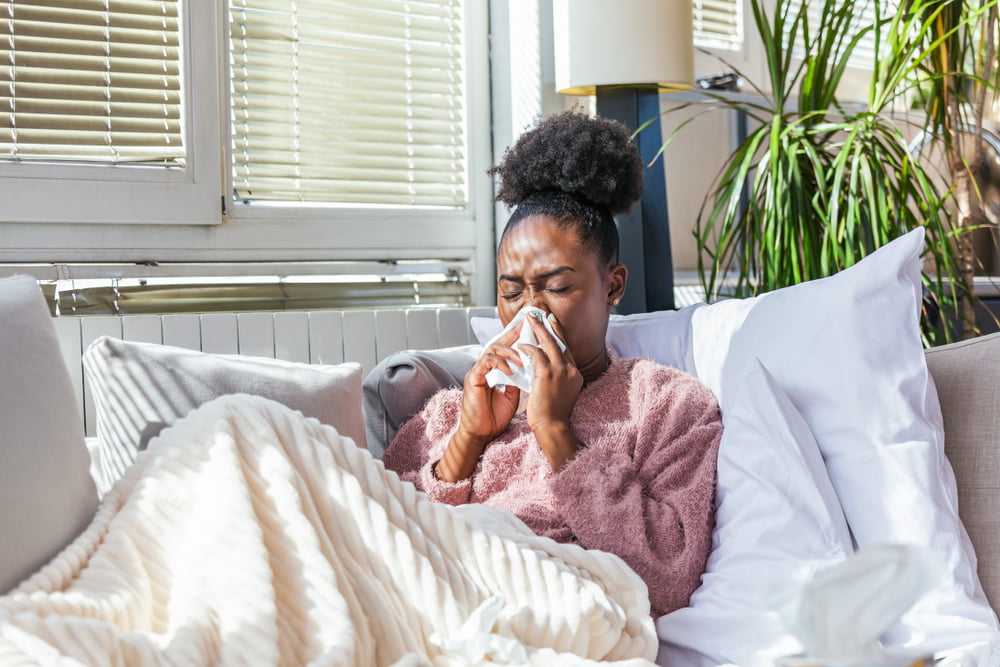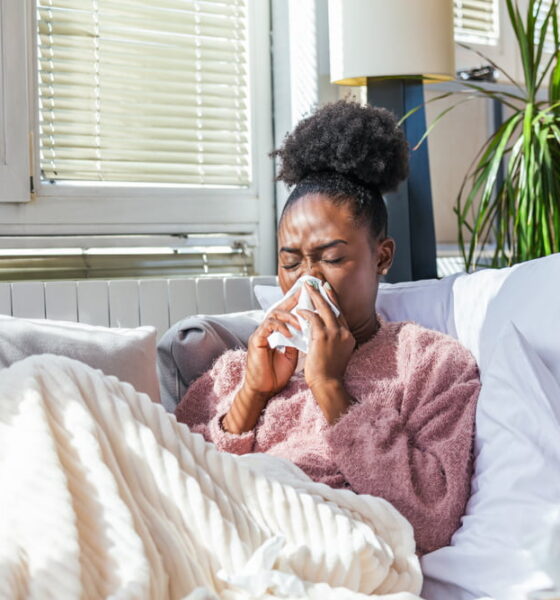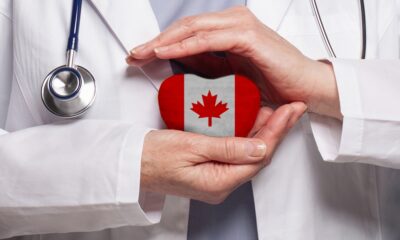

Environment
4 Eco-Friendly Ways to Treat a Sinus Infection
Sustainable healthcare has become a big topic of discussion in recent years. Many medical providers are looking for new ways to lower their carbon footprint and preserve natural resources.
However, everyday consumers need to also look for eco-friendlier options to treat their own problems. Many of them have started relying on more holistic treatment options that don’t leave the same carbon footprint as traditional pharmaceuticals. We talked about using eco-friendly muscle treatments, but there are other ways to help the planet when you have an illness.
One way that people can try to become eco-friendlier is by finding more holistic ways to treat sinus infections. Some options are described in the content below.
Exploring Eco-Friendlier Ways of Treating Sinus Infections
Something that most of us are probably familiar is the feeling of dread and discomfort that comes with having a sinus infection. Even the most dedicated eco-friendly consumers might put concerns about the environment in their rear view mirror when they have a sinus infection. They will pursue any treatment, regardless of its impact on the planet.
Maybe you’re experiencing a nasty cough, a sore throat, or some pain/swelling in the face. Perhaps a runny nose gave way to a nasty bout of post-nasal drip or a terrible headache. Either way, you might have a sinus infection—a common affliction that can strike pretty much anyone. Around 31 million people get sinus infections each year.
So, what can you do to get rid of one without harming the environment by using destructive pharmaceuticals? Here’s a quick primer on sinus infections, along with four eco-friendly ways you can treat them and help prevent viral sinus infections from spreading. Check it out below.
Sinus Infections Explained
At its most basic definition, a sinus infection is a build-up of fluids in the nasal cavities that allows bacteria to grow. The bacteria (or sometimes fungus and/or viruses) grow and thrive in the cavity, causing swelling, pain, fever, coughing, sneezing, nasal drip, and many other symptoms. There’s acute (and subacute which lasts a bit longer) and chronic sinus infections. Acute infections usually last a few weeks while bacterial infections tend to go on for some time, often resulting in Chronic Sinusitis. You also probably want to know, are sinus infections contagious? Some of them are. There are a few ways someone can get a sinus infection. Smoking, seasonal allergies, a deviated septum, having a previous cold, bacterial infection, fungal infection, and viral infections are all the more common ways. A bacterial sinus infection isn’t contagious, but a viral infection is quite contagious and can spread to others. You’ll often be able to spot the difference because a bacterial infection lasts much longer and can include severe fever, headache, and excessive nasal discharge. Conversely, a viral infection (the contagious one) clears up in about a week on average. If symptoms persist for longer periods, the best course of action is to seek out a doctor’s opinion, either in person or through your telehealth provider.
Antibiotics and Antifungal Treatments
While there are some cases where a sinus infection will clear up on its own, helped along by over-the-counter treatments and bed rest, there are times when antibiotics or antifungal treatments might be recommended by your doctor. If the symptoms are extreme or it’s lasting a long time, a bacterial infection might be treated with antibiotics. Antibiotics are not useful for viral infections (they’re also referred to as “antibacterials” which should provide a clue as to their uses). Antibacterials will just end hurting your immunity and leaving a larger carbon footprint. Because some sinus infections are caused by fungus or more, antifungal medication may be necessary to help treat and slash or mitigate the symptoms of the infection. These usually require a prescription. Antifungal nasal spray is an effective treatment. In cases of a viral sinus infection – one of the most common transmission methods and causes of sinus infections – antibiotics might be prescribed by a doctor to treat the illness more effectively.
You will want to try the following options instead. The best news is that they are eco-friendly, as well as effective.
Nasal Decongestants and Sprays
Sinuses are ostensibly nasal passages. So, it stands to reason treating the passages themselves would be conducive to treating the infection. Nasal sprays are useful for draining mucus out of your nasal passages. Since sinus infections are usually caused by blockages and build-ups in the sinus, they offer clear benefits for reducing symptoms and treating/preventing infections. Some fair warning here: some nasal sprays can be addictive, so you need to be sure to only use them as instructed by your doctor. A simple saline nasal spray can be beneficial (these are non-medicated and have no addictive compounds in them). Some nasal sprays have steroids in them that can help treat the sinus infection. Some sprays do have side effects—such as dry nose, occasional, burning, sneezing, and increased mucus—so watch out for those and doctors recommend discontinuing using the spray if you experience any side effects. Another method of treating a sinus infection is to use a nasal irrigation method. This consists of mixing
non-iodized salt, baking soda, and warm water together, then injecting it into the nose via a small syringe. This effectively irrigates your sinuses. As the water runs out of the nostril, it’ll take with it any blockages or other nasty stuff through the water. A Neti Pot works in a similar fashion and can also be quite useful for irrigating the sinus.
Steam and Humidifiers
Another unique and effective method for mitigating sinus infection symptoms is to use steam and humidifiers. Adding moisture to the air is great for your sinuses. Dry air has a tendency to irritate your sinuses, cause swelling, and just generally make things miserable. When you add moisture, it softens up your mucus allowing it to flow easier and can calm the irritated areas inside of your nasal passages. Steam (from a hot shower or facial press) can also help provide some relief.
Staying Hydrated
If you’ve ever visited the doctor while you’re sick, you’ve undoubtedly been told to stay hydrated. So, why is staying hydrated so essential to getting better? Colds, flus, sinus infections, and fevers in general tend to cause fluid loss. As your body sweats or you sneeze/nasal drip, fluid and electrolytes tend to leave your body much faster than normal. This ultimately leads to dehydration—something that’s often much worse than simply dealing with the fever. Dehydration can cause dizziness, fatigue, confusion, and other problems. So, drinking plenty of water is the best way to go when you’re sick (well, anytime, really). You can also try drinking juice or electrolyte-rich beverages such as Gatorade. Basically, you need to replace all of that lost fluid in your body. Tea, soda, coffee, and alcohol are not a great choice during this time, so it’s best to stick with water for optimal fluid replacement as you get over your sinus infection.
Use Eco-Friendly Sinus Infection Treatments
Are you serious about sustainability? You have to find holistic treatments for issues like sinus infections. This will lower your carbon footprint while also helping you feel better in the process.


 Environment12 months ago
Environment12 months agoAre Polymer Banknotes: an Eco-Friendly Trend or a Groundswell?

 Features11 months ago
Features11 months agoEco-Friendly Cryptocurrencies: Sustainable Investment Choices

 Features12 months ago
Features12 months agoEco-Friendly Crypto Traders Must Find the Right Exchange

 Energy11 months ago
Energy11 months agoThe Growing Role of Solar Panels in Ireland’s Energy Future




























